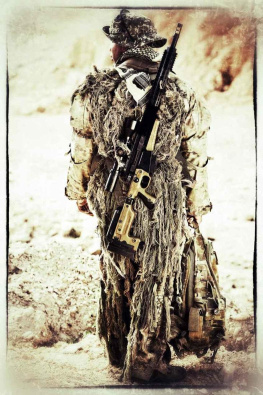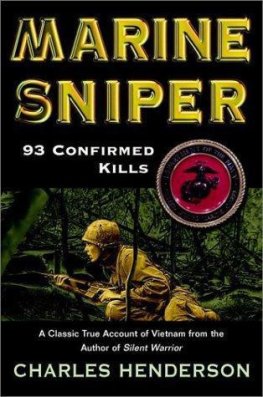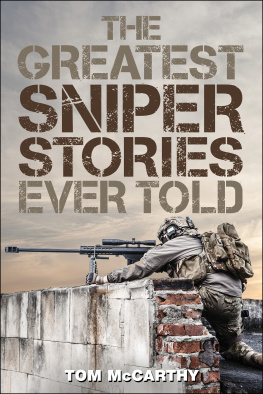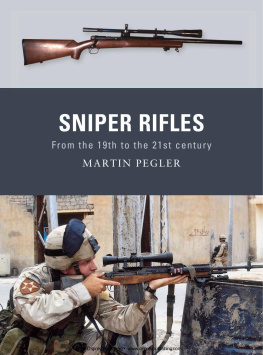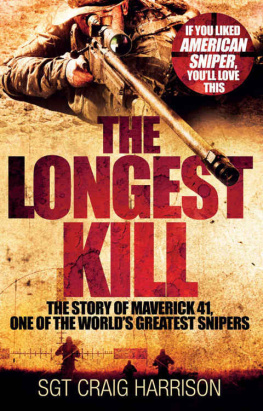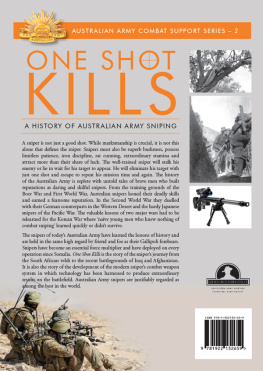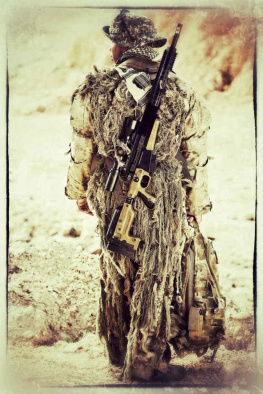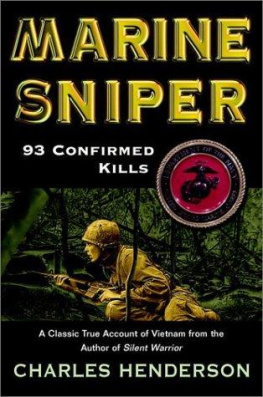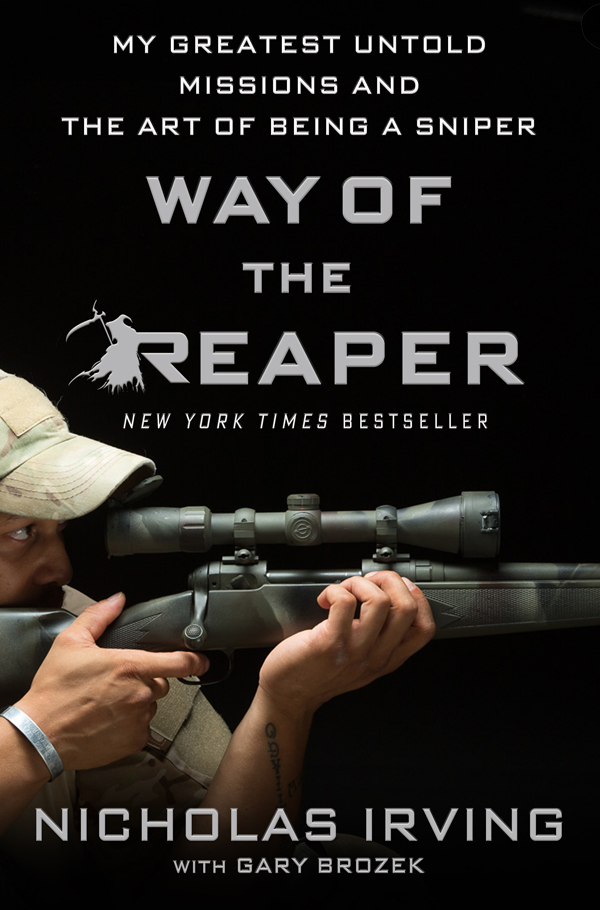Contents
Guide
ALSO BY NICHOLAS IRVING
The Reaper

The author and publisher have provided this e-book to you for your personal use only. You may not make this e-book publicly available in any way. Copyright infringement is against the law. If you believe the copy of this e-book you are reading infringes on the authors copyright, please notify the publisher at: us.macmillanusa.com/piracy.
To the fallen men of the 75th Ranger Regiment and, in particular, Ben Kopp and Anibal Santiago
When I sat down to write my first book, The Reaper, I had a couple of goals in mind. One of them was obvious: to share my experiences as a sniper and to reveal how it was that I was able to score so many killsthirty-threein such a short period of time. If youve read that book then you know that a lot of my success was due to my being in the right place at the right time. Our operational tempo was very high during that period in Afghanistan in 2009. A lot of other highly skilled snipers in the Rangers simply didnt get the opportunity that I had. Im a huge sports fan, and football is my main game, and in some ways Id like to think that I was the young, untested quarterback who came in to replace the injured starter. I got lucky and had some early success and the coach decided to go with the hot hand and ride that streak of good fortune and good execution for as long as he could. The truth is, that wasnt exactly the case. Yes, I did get off to a good start and all of that, but it was just our units good luck that when the time came for us to roll on out, we encountered the enemy.
Im pretty sure that if any of the other snipers besides me had gone out there, they would have gotten the job done. Thats not being modest, thats just the truth of it. The kind of close-action sniping that made up the majority of those kills is very different from the long-distance/long-range sniping that a lot of people associate with the specialized work that snipers do. Sure, I had to do some calculations and rely on my spotter for information, but, except in rare cases, I wasnt out there alone for days on end essentially by myself. Im not a lone-wolf kind of guy. I like being with my pack and I know that for as much as I had their backs and was working my ass off to protect them, my teammates were there for me.
For that reason, I wanted to share more of my experiences with you. If youve read The Reaper, then youve already gotten the basics of my career in the military: my background as the son of a military man and a military woman, and how I was fortunate to become a proud member of the finest fighting force out therethe Rangersafter first serving in various capacities as a Stryker driver and machine gunner, then enrolling in Sniper School, and eventually rising to the role of Sniper Team Leader.
The focus of those earlier stories was always going to be on that extraordinary period in 2009 when I worked in the Special Operations community as a Ranger. I use the word extraordinary in the purest senseit was beyond the normal in terms of intensity compared with what a lot of deployments, including many of my others, were like. The truth is that missions arent successful, battles arent won, just by the guys at the point of the spear. The Rangers Lead the Way, as the motto goes, but a lot of other people put them out front and back them up. It takes an incredible amount of teamwork and support from every level to get the job done. A lot of times, that work isnt very glamorous and wont grab any headlines or become a sound bite on the news. It will rarely be the subject of a question from an audience member at a book signing or to a radio call-in program.
Dont get me wrong. Im not saying that the work isnt dangerous, that the adrenaline isnt pumping, or anything like that.
I know that a lot of times when someone achieves something thats worth noting, its almost as if hes an overnight success. I dont think that anybody ever succeeds without having to pay the price along the way, without having to learn more than a few lessons, sometimes from great teachers and sometimes the hard waythrough experience.
The stories that I want to share with you span my entire military career and reflect a wide variety of the experiences I had and some of the lessons I learned during the six years I proudly served. That said, they dont include every one of my proudest moments. I should clarify that a bit. Im proud of the work that I did in my six-year career in the Army. I didnt always perform at my absolute best, but thats on me and not the people I worked withthe team leaders, platoon commanders, and others who put me in the position where I could succeed or fail. When I had that run of good fortune in 2009, I was twenty-three years old, but Id been in the military for five years. That means that Id had a lot of time and opportunity to learn a few things.
Im proud to say that before I became a member of the sniper team I served as a member of the weapons squad for a long time. My days as a machine gunner really helped me to see the big picture, to be able to understand the tactical side of operations, to get a feel for how our enemies would operate in both an urban and a rural environment. I wasnt always staring down the scope of Dirty Diana, my SR-25 weapon. Id done a lot of other things before I earned my spot as a sniper. I was eighteen years old when I entered the Army; working with weapons was like being turned loose in a toy store. I appreciated what a .50-caliber machine gun could dohow deadly it could bebut still it was a whole lot of fun having that kind of power in my hands.
It was funny that for each weapon system or other equipment I was being trained on, those lessons were called school. To me, it was more like recess. Who wouldnt have felt that way when they had their hands on a Mark 47 computer-aided grenade launcher? With that thing I felt like I could put a grenade through an open window damn near a mile away. It was like a sniper rifle that shoots grenades. How cool was that?
Some of the other highlights of my early training were becoming Gustav-qualified. That .84mm Carl Gustav recoilless antitank weapon was amazing. The surreal part of it all was that it wasnt a weapons choice I had from the armory in a video game, I was actually holding it my hands.
Probably the best example of the kind of teamwork that made my days in the weapons squad so memorable was being at the controls of a 20-ton Stryker. I was in charge of maneuvering that giant eight-wheeled armored vehicle, but I had to rely on someone else to give me directions through the streets of Mosul, Iraq. I was nineteen and twenty years old and that kind of power at your disposal is both humbling and thrilling. Thanks to my troop commander, Juan, I was able to keep him and me, and the other nine members of the unit traveling in the Stryker, safe. The Army and my fellow GIs put a lot of trust in me, and as a result I grew up fast, became a more confident and competent individual than I would have been if Id have gone on to college or gotten a job right out of high school. Having millions of dollars of US government property and the priceless lives of guys you cared about as if they were your brothers will do that for you. The bonds that I formed with many of the guys I served with remain as strong as ever.
Since Ive retired from active duty, I miss the camaraderie and I know that theres nothing I will do in my life that will come close to reproducing the feelings I had while at war. This book is a way for me to share those feelings with others again. Its been a real pleasure for me to reflect on those times, places, and lessons that helped make me who I am today. I hope that you enjoy them.


